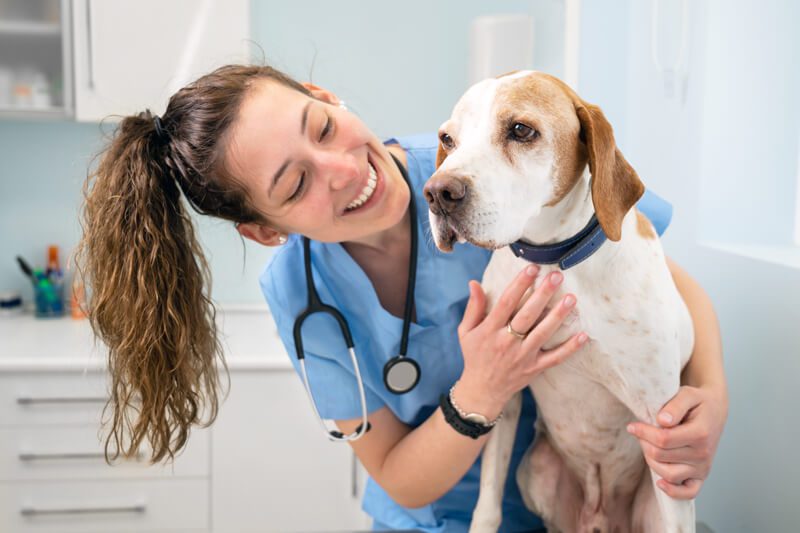Why a Veterinary Cancer Specialist is vital in successful cancer care
Wiki Article
The Relevance of Early Discovery: Insights From a Vet Oncologist
Early discovery of cancer in animals is an important subject for family pet owners and vet professionals alike. Vet oncologists emphasize the relevance of acknowledging refined signs that might indicate serious health concerns. Typical symptoms commonly go undetected until they escalate. Comprehending these early warning indications and advancements in analysis methods can make a substantial distinction. What steps can pet dog owners take to boost their animals' opportunities of very early medical diagnosis and better therapy results?Recognizing Cancer Cells in Pets: Usual Types and Symptoms
While several pet dog proprietors might not understand it, cancer is a significant health concern impacting pets, just like it carries out in human beings. Typical sorts of cancer in pet dogs consist of lymphoma, pole cell tumors, osteosarcoma, and mammary growths. These malignancies can manifest in different ways, depending on their location and kind. Signs often consist of inexplicable fat burning, consistent vomiting, modifications in cravings, or unusual swellings and bumps. Pet dogs might additionally exhibit sleepiness, difficulty breathing, or unwillingness to workout, which can show underlying health concerns. Early signs can be subtle, making it crucial for pet proprietors to be observant of their animals' actions and physical problem. Understanding these usual types and associated symptoms can encourage owners to seek vet care promptly, potentially bring about earlier diagnosis and therapy choices. Identifying the indicators of cancer cells in animals is a crucial action towards improving their health and wellness and quality of life.The Duty of Veterinary Oncologists in Early Detection
Veterinary oncologists play a necessary function in the early detection of cancer cells in family pets, as their specialized training furnishes them with the skills required to recognize refined indications that may be neglected by family doctors. They make use of a combination of medical proficiency and progressed analysis tools to assess individuals thoroughly - Veterinary Oncologist. By acknowledging early signs and symptoms and danger aspects, oncologists can direct pet dog owners towards prompt treatments, increasing the chances of successful therapyVet oncologists frequently team up with basic specialists to develop screening protocols tailored to specific types or age teams, enhancing the performance of early discovery initiatives. They educate animal owners on the significance of routine check-ups and recognition of modifications in habits or physical problem. Via these proactive steps, vet oncologists considerably add to enhancing results for pet dogs detected with cancer cells, stressing the vital nature of their role in veterinary medical care.
Advancements in Diagnostic Techniques for Family Pet Cancer Cells
Developments in diagnostic methods have significantly boosted the capability to discover cancer cells in family pets at earlier phases. Strategies such as sophisticated imaging, consisting of MRI and CT scans, provide detailed internal views, allowing vets to recognize lumps that might not be palpable. Additionally, the development of minimally invasive treatments, such as fine needle aspirates and biopsies, enables accurate tasting of tissues for histopathological evaluation with lowered stress for the animal.Arising molecular diagnostics, including hereditary testing and biomarker recognition, are changing the landscape of vet oncology. These methods can determine particular cancer kinds and predict actions to therapy, helping with customized care plans. Developments in research laboratory strategies, such as fluid biopsies, are starting to provide non-invasive alternatives for monitoring growth development and treatment effectiveness. Collectively, these advancements represent a considerable leap ahead in veterinary medication, stressing the essential function of early detection in enhancing outcomes for pets identified with cancer cells.
How Animal Owners Can Identify Caution Indications
How click here to find out more can animal proprietors come to be alert in acknowledging prospective warning signs of cancer cells? Understanding of physical and behavior changes in pets is necessary. Common signs include unusual lethargy, anorexia nervosa, or unexpected weight changes. Pet dog proprietors should additionally take note of persistent vomiting or diarrhea, which may signal underlying issues.Changes in the skin, such as lumps, bumps, or sores that do not heal, require instant vet interest. Furthermore, proprietors need to keep in mind adjustments in alcohol consumption practices, raised peeing, or problem in breathing. Unusual hopping or pain may additionally be indicators of more significant problems.
Regular vet examinations can assist determine these warning indicators early. By keeping a close observation of their animals' health and actions, proprietors can play a vital duty in very early discovery, possibly causing better outcomes ought to cancer i loved this be detected. Identifying these signs may substantially influence a pet's top quality of life.
The Influence of Early Discovery on Therapy End Results
Early detection of cancer in family pets plays a necessary function in determining treatment results, as it usually permits a broader series of therapeutic choices. When cancer cells is diagnosed in its onset, veterinarians can implement less intrusive treatments, boosting the probability of successful intervention. Early-stage cancers might additionally react much better to radiation treatment or radiation, bring about enhanced survival prices and overall quality of life for the pet dog.Furthermore, punctual diagnosis assists in a more customized therapy strategy, straightening with the specific requirements of the animal. This can consist of individualized medicine routines or surgical treatments that are less hostile. Conversely, late-stage detection commonly causes limited options, a lot more hostile therapies, and poorer prognoses. The value of very early discovery can not be overemphasized; it fundamentally modifies the trajectory of treatment, making it vital for family pet owners to stay attentive for any type of indications of illness in their beloved companions.
Regularly Asked Concerns

Just How Can Diet Impact Cancer Danger in Pet Dogs?
Diet plan considerably affects cancer cells threat in family pets, as certain nutrients and food types can either promote or inhibit lump growth. A well balanced, nutrient-rich diet might help in reducing the possibility of developing cancer cells in animals.
Are Specific Types Extra Prone to Cancer cells?
Particular dog types, such as Golden Retrievers and Martials artists, exhibit higher cancer sensitivity because of genetic tendencies. Some feline types also show enhanced cancer threats, highlighting the significance of breed-specific health awareness among animal owners.
What Are the Expenses Connected With Early Cancer Discovery?
The prices associated with very early cancer cells detection can differ considerably, encompassing analysis tests, assessments, and potential treatments - Veterinary Cancer Specialist. Spending in these solutions often brings about much better health results, ultimately saving on extra considerable future clinical expendituresCan Vaccinations Prevent Cancer Cells in Family Pets?


Vaccines may lower the risk of specific cancers cells in family pets, specifically those connected to viral infections. Nonetheless, their efficiency differs, this post and family pet owners ought to consult veterinarians for tailored advice pertaining to vaccination and cancer avoidance methods.
Exactly How Frequently Should Family Pets Be Screened for Cancer?
Pet dogs need to normally be evaluated for cancer every year, especially as they mature or if they display threat aspects. Routine veterinary check-ups can help determine possible problems early, boosting therapy results and general health administration.Early detection of cancer in family pets is a vital topic for pet dog owners and veterinary experts alike. Early indications can be subtle, making it vital for pet dog owners to be watchful of their family pets' actions and physical problem. Veterinary oncologists play a vital role in the very early discovery of cancer in animals, as their specialized training furnishes them with the abilities required to determine subtle signs that might be ignored by basic experts. By maintaining a close observation of their animals' health and behavior, proprietors can play a crucial duty in very early discovery, possibly leading to much better outcomes need to cancer be detected. Early detection of cancer cells in pets plays a crucial role in figuring out therapy outcomes, as it frequently enables for a larger range of healing choices.
Report this wiki page